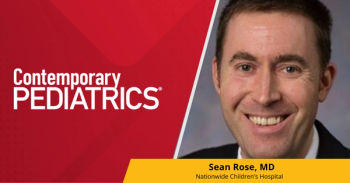
Teens With Eating Disorders Use Web sites That Promote Disordered Eating
Web sites that promote anorexia and bulimia are used by a significant number of adolescents with eating disorders, according to a study from Stanford and Lucile Packard Children's Hospital (LPCH) researchers, presented at the Pediatrics Academic Societies 2005 annual meeting.
Web sites that promote anorexia and bulimia are used by a significant number of adolescents with eating disorders, according to a study from Stanford and Lucile Packard Children's Hospital (LPCH) researchers, presented at the Pediatrics Academic Societies 2005 annual meeting.
Teenagers use the sites to chat about weight loss and find tips on how to hide their food-avoidance behavior from friends and family, the study found. It also found that teenagers who use the sites spend less time on homework and more time in the hospital than peers who do not use these sites.
According to LPCH adolescent medicine specialist Rebecka Peebles, MD, "These Web sites are founded on the mistaken belief that eating disorders are not a disease, but a way of life." She pointed out that the sites are "well-designed and alluring, often with a gateway emphasizing the danger of the site that can be attractive to teens."
This preliminary study was conducted through an anonymous survey of medical histories and Internet use sent to the families of adolescents diagnosed with an eating disorder at LPCH since 1997. Patients and parents were asked to fill out separate forms documenting their struggles with the condition. Fifty-two adolescents and 77 parents responded. The researchers found that 40% of the adolescents who responded had visited Web sites promoting eating disorders and 34% had visited sites dedicated to recovery from the condition. About one quarter frequented both types of sites, and half the respondents had visited neither.
"There is a profound ambivalence that embodies the pro-eating disorder sites," said Dr. Peebles. "There are discussions in chat rooms and on bulletin boards about how much the disorder pains sufferers and cautioning others against trying too hard to lose weight."
"It's such a dichotomy," continued Peebles. "Teens enter the sites promoting eating disorders possibly to gain solidarity and to express their pride in and publicize what they see as a lifestyle choice. At the same time they are cautioning others not to follow in their footsteps. Teens in the midst of an eating disorder need to voice what they want: to continue to lose weight. While many people believe the Web sites should be shut down, it could be a very isolating experience for the users."
A larger study is planned, but, in the meantime, the researchers hope their results will serve as a wake-up call to physicians who are treating adolescents with eating disorders, as these physicians may underestimate the influence the Web sites are having on their patients. (Poster Session 6802)
Newsletter
Access practical, evidence-based guidance to support better care for our youngest patients. Join our email list for the latest clinical updates.






